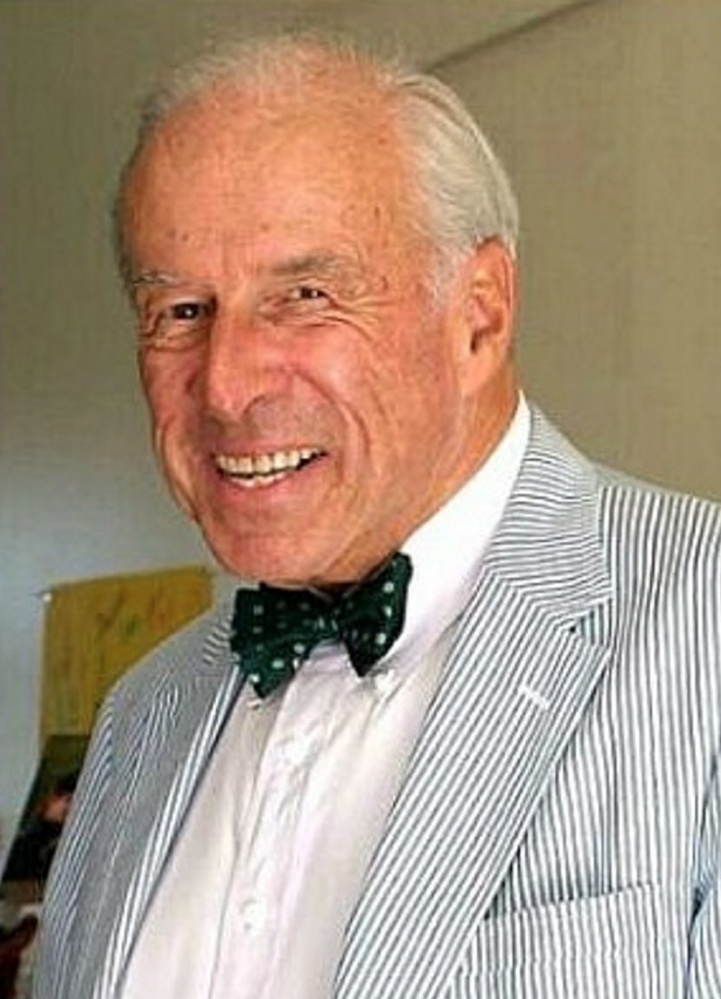The public was shocked recently to learn that Russell “Rusty” Brace was accused of embezzling nearly $4 million in donor contributions from Camden’s United Mid-Coast Charities. Brace, the organization’s long-term volunteer president, is said to have orchestrated this outrageous scheme.
Missing, however, in local news coverage is any reference to the failure of the United Mid-Coast Charities board of directors to live up to its fiduciary and oversight duties to stakeholders.
The only serious media criticism of the board came from a national publication, Nonprofit Quarterly, which noted in an Oct. 6 column, “Maine Fundraising Federation Comes Up Short – Who Was Watching the Money?”:
“It would seem that someone on the board over a period of many years … might have been interested enough to look at the agency’s finances and notice the income and output discrepancies … There is no question that the entire board of United Mid-Coast Charities has an element of culpability for failing to provide anywhere near the fiduciary oversight that it should have.”
A pending lawsuit filed by United Mid-Coast Charities in Knox County Superior Court claims that its longtime president spent 13 years secretly siphoning off $3.8 million of its charitable funding for his own use.
The lawsuit presents Brace as a crook. But the board of directors also let down donors and others who rely on the board’s responsible oversight.
Revelations of weak internal financial controls in an organization result in almost immediate decline in public support.
Recent studies have validated this unfortunate outcome. That is a price that United Mid-Coast Charities will pay.
Who can blame donors for losing trust? A new president talks about process reviews and tightened procedures to come, but the damage is done.
We draw a number of corporate governance lessons from the United Mid-Coast Charities debacle:
• Keep the board of directors to a workable size, with an effective committee structure. A 43-person board is way too big for effective governance and oversight.
• Board members must understand that their fiduciary duty and legal responsibility is to probe, question and be satisfied that the organization is being run well and ethically, and cannot blindly trust fellow directors or staff.
• You get what you pay for. Hire competent staff. Boasting about being all-volunteer with no paid staff for a multimillion-dollar organization is an indictment, not a credit.
• A board requires a tough and qualified audit or finance committee. Passionate board members are fine, but knowledgeable and attentive financial professionals must also populate nonprofit boards and working audit committees.
• An external audit has its limits. It is only a CPA’s opinion on the adequacy of financial statements and accounting methods and is no substitute for internal controls.
• Serious organizations periodically perform an internal audit to assess things like the adequacy of internal controls, signature requirements, conflicts of interest and fraud deterrence processes.
• Create a culture of ethics and financial transparency, and establish and follow written policies. In the annual Internal Revenue Service Form 990, for instance, an organization must disclose if it has a written conflict-of-interest policy.
United Mid-Coast Charities’ latest filing stated that it had no policy. Such policies, standard in serious organizations, usually cover ethical expectations as well.
In the absence of any such policy, United Mid-Coast Charities paid its president’s outside company $50,000 per year. This looks like conflict and ethical failure, whether or not disclosed.
Ironically, we introduced the law school’s fifth annual Governance and Ethics Symposium last year with the following observation: “From embezzlement by small-town Little League treasurers to fraud and corruption within some of its largest financial institutions, America has witnessed stunning breaches of trust in the past several years.”
The media has reported on nonprofit embezzlements in Maine, from the 2012 Lewiston Sun Journal article “Embezzlement rising in Maine” and numerous articles about misappropriation of agency funds by a former director of the Maine Turnpike Authority, to Bill Nemitz’s recent account in the Portland Press Herald of the debacle at United Mid-Coast Charities.
Despite such programs and attention, the lessons seem not to have sunk in – at least, not yet.
— Special to the Telegram
Send questions/comments to the editors.


